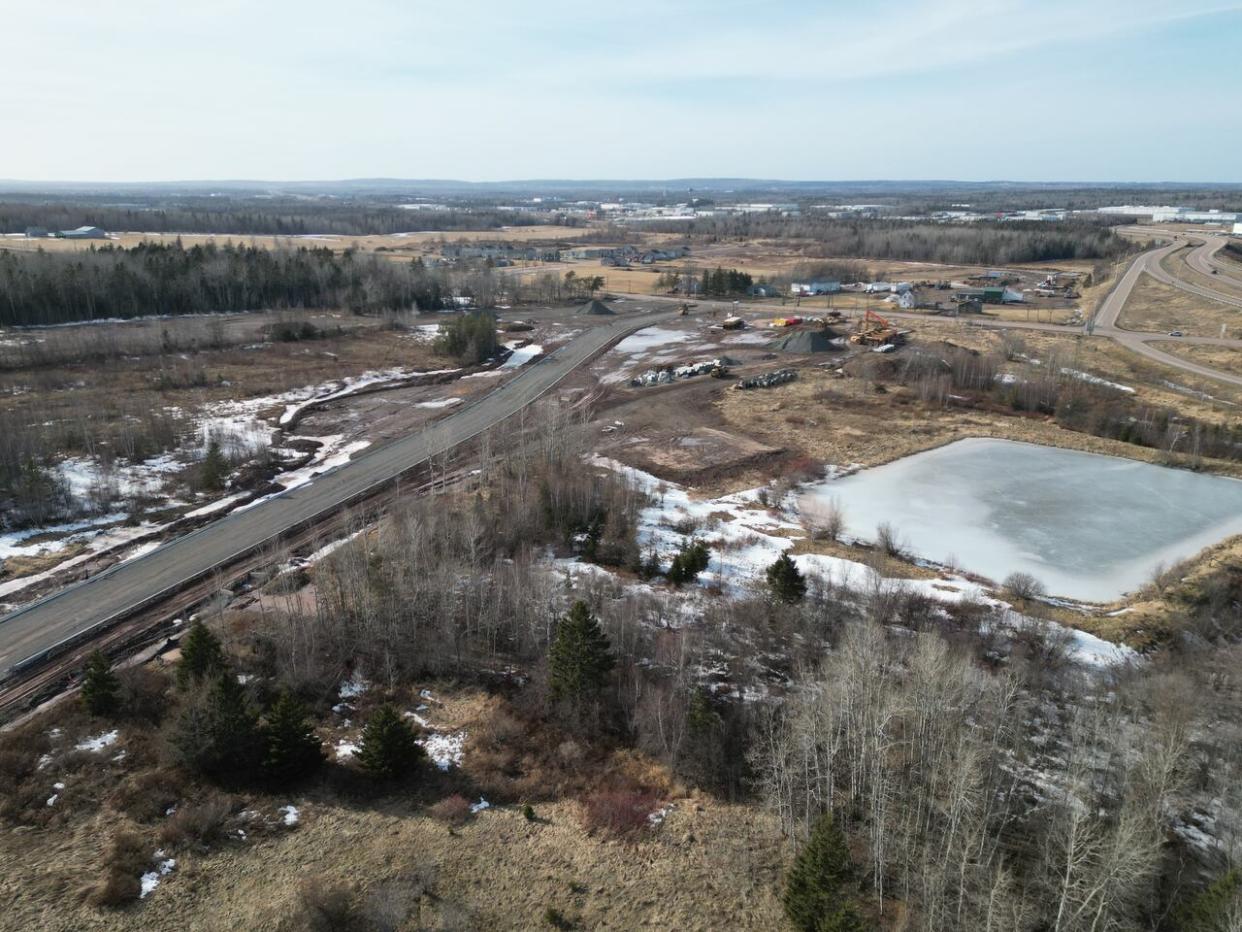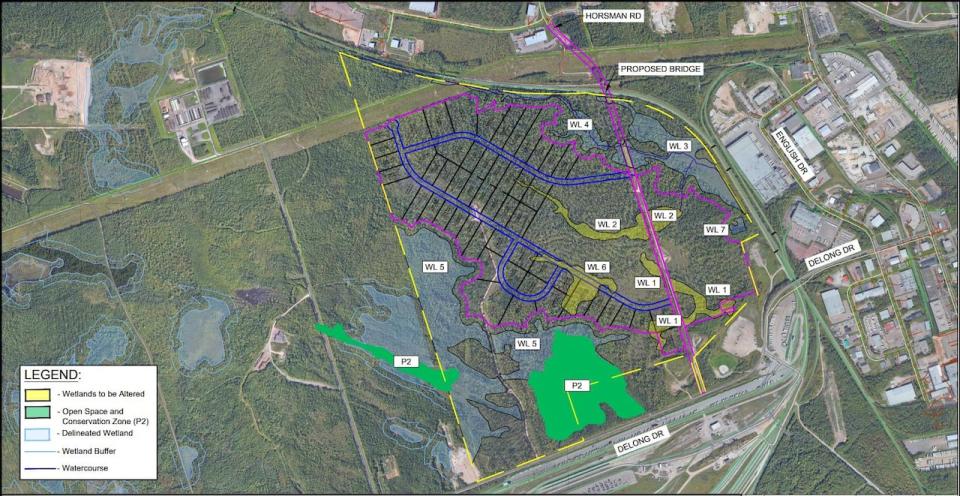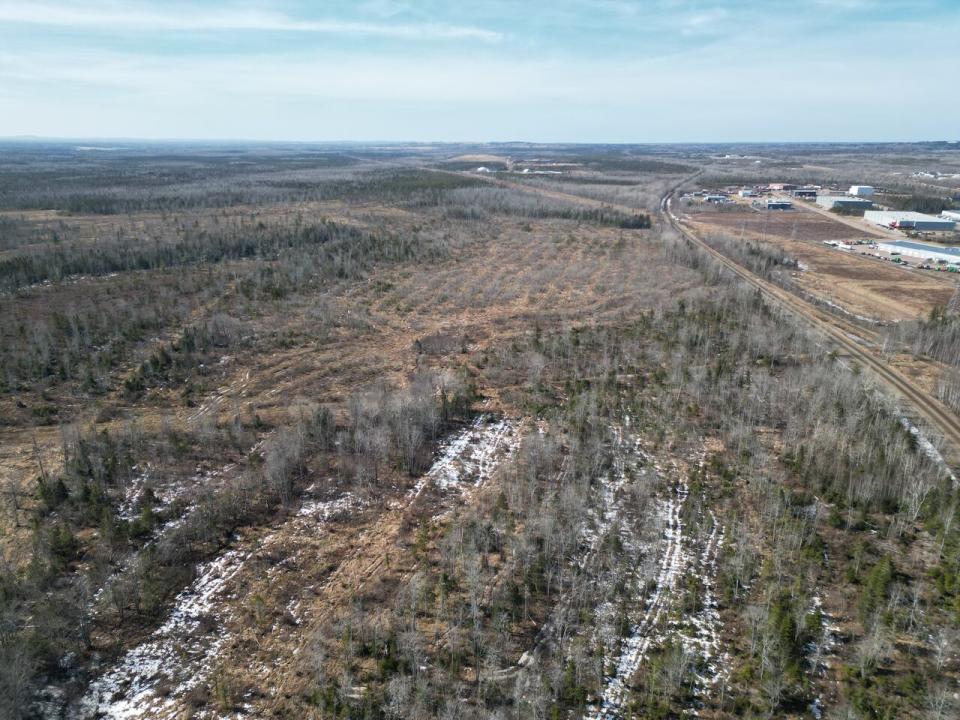High demand for industrial park land has non-profit eyeing expansions

The company building Moncton's industrial parks is racing to open up more land for companies expanding or setting up shop in the city.
Moncton Industrial Development Ltd. (MID) is expanding two of its parks, hopes to begin a large expansion of a third this year, and recently bought a swathe of land for a whole new park already expected to be sold out by 2030.
Pierre Dupuis, general manager of the non-profit company, said it is selling 75 to 80 acres per year compared to 30 acres around 2018.
"There doesn't seem to be a letdown in terms of that demand," Dupuis said.
As a result, the company is about to request city council expand what's known as the urban boundary, a limit meant to reduce sprawl, even as the municipality eyes more compact residential development over the next 25 years.
An urban growth strategy presented to city council last week says "the MID land inventory is being sold and developed at an accelerated rate that continuously requires the expansion of new employment lands to meet current and projected demands. This is directly impacting the overall structure and serviceable areas of the City."
Bill Budd, the city's director of planning and development, told councillors last week municipal staff are working closely with MID on expansion plans as they eye future locations.
"They need to start thinking about the next location," Budd said Feb. 26.

The proposed layout of the park showing some of the planned streets as well as wetlands that would be affected in yellow. (Moncton Industrial Development/Submitted)
Moncton Industrial Development started in 1959 as a partnership between the municipality and chamber of commerce. It is responsible for designing the industrial parks, infrastructure development and selling the land, which is how it recoups the cost to buy and service land.
Dupuis said demand for land started ramping up just before the pandemic. Walmart recently opened a large distribution centre, reflecting how about 60 per cent of MID's land has been used for trucking and warehousing.
However, Dupuis said there's been an uptick in the number of manufacturing companies setting up shop in Moncton. He pointed to companies like Ideal Roofing and JessEm Tool Company that opened shops in Moncton in recent years.
But as new buildings go up in existing parks, it means MID is looking to increase its supply of vacant land.
Caledonia, a large industrial park north of the Trans-Canada Highway, is fully sold. An expansion is underway to add 40 acres.
Harrisville Logistics Park, in the city's east end near the airport with 124 acres of land, is under construction. Already, 82 acres are pre-sold.
Another park off Elmwood Drive opened in 2020 is about 70 per cent sold.
In January the provincial government gave environmental approval to MID for an expansion of Moncton Industrial Park West south of Berry Mills Road. That's expected to add about 250 acres of land, though 90 are already pre-sold.

Moncton Industrial Park West is expected to expand south of Berry Mills Road and the CN rail line, shown to the right, into this wooded area and south to the CN rail yard. (Denis Mazerolle/Radio-Canada)
"This will be the third sort of expansion for MID at the same time, which, historically, the organization's never been that busy from a development expansion perspective," Dupuis said.
That expansion, north of the CN rail yard, has attracted interest from companies that want access to rail.
But even with those expansions, MID is already eyeing development of another new industrial park.
In September it bought 145 acres of land north of the Trans-Canada Highway between Mapleton Road and McLaughlin Drive.
The urban growth strategy presented to council last week says that if current trends continue, MID expects that land will be sold and developed before 2030.
The rapid expansion requires costly infrastructure, including bridges over rail lines, water and sewer systems, roads and storm water holding ponds. Beyond the cost, it's also infrastructure that takes time to design and build.
Dupuis said the industrial park near the rail yard requires a sewer line to be installed along Wheeler Boulevard. He expects that work will likely start this year in parallel with an application for city council to allow the industrial park.
"It's a busy time," Dupuis said in an interview. "I'd rather have the challenge of having too much demand than no demand at all."


